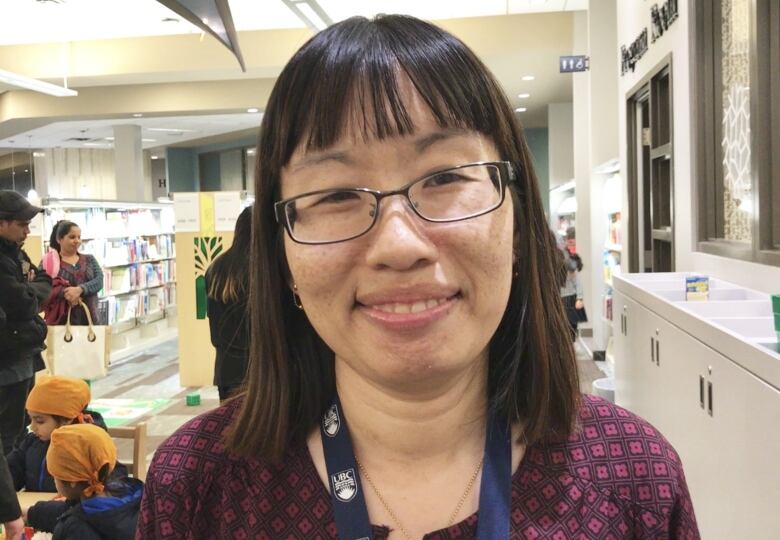https://www.cbc.ca/news/canada/calgary/newcomers-language-english-calgary-success-1.4880207?fbclid=IwAR1WWVddjGwwc5oJ3iVJ8ZipjP3ZfDk0m-mtBnMO-oFNT_eDKadHpyuf8N4
A language workshop for parents in northeast Calgary is highlighting the many benefits of keeping home languages alive and encouraging parents to pass on their spoken language to their kids.
The workshop was organized by the Calgary Board of Education and the Calgary Public Library’s Saddletowne branch.
“The program came out of research into keeping the home language alive and the importance of it,” said Melanie Wong, a CBE strategist whose focus is English-language learners.
Wong says research shows maintaining first languages improves children’s self-esteem and sense of cultural identity while helping kids succeed in the English school system.
“Sometimes English is the priority because they want to integrate into society, but what we’re finding is that first language is still key,” Wong said.

The CBE’s Melanie Wong says evidence shows that kids who learn their home language as well as English are more successful in school, especially when it comes to excelling in English. She encourages parents to read, write, sing and even joke at home in their own language. (Dan McGarvey/CBC)
“It’s really important because we do notice that the academic gains are better at school when they do have that first language,” said Wong, adding kids who keep up their first language see improved literacy and success in English.
But Wong says there’s also a stigma for some kids around learning and speaking their home language.
Many in the English school system can feel embarrassed to speak their first language once they learn English.
“Once we try to encourage them to speak our home language but they try to avoid it because of the accent issue,” said parent Getu Admasu, who moved to Calgary from Ethiopia in 2001.

Parents like Getu Admasu, who came to Calgary from Ethiopia, say it’s often a challenge to get their kids to learn their home language. (Dan McGarvey/CBC)
“If mom and dad speak their own language at home, the kids will learn. But if we are switching to English, there is no point,” said Admasu.
Admasu says he uses posters in the house with words and phrases in the two languages beside each other, setting his kids a daily target of words to learn to encourage them.
Many parents want their kids to learn their first language to communicate with friends and relatives and maintain strong ties to their culture.
“I’m very interested to keep my home language alive with my kid,” said Chhabi Raval.

Many parents, like Chhabi Raval, want their kids to learn their language in addition to English to keep them connected to their culture, traditions and family. (Dan McGarvey/CBC)
“I want to know how I continue with it because for me it is very important for him to know what language I speak and his grandparents speak. I value it,” said Raval.
“It is very much a challenge. They are small right now so they don’t know but it is something we should give them,” said Raval, who says she doesn’t want her children to miss out.
The workshop included time for parents to play with their kids, encouraging them to use their home language, using books and playing with toys.
The workshop was the first of its kind in Calgary. The CBE says it’s looking at more opportunities at other libraries in the future.
